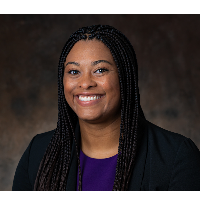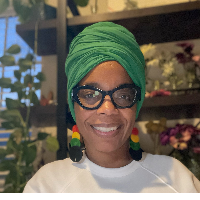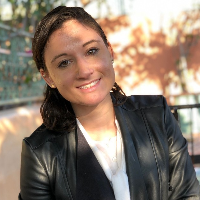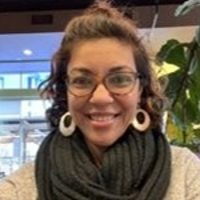The Office of the State Superintendent of Education (OSSE) Division of Teaching and Learning is excited to announce the Spring 2024 Literacy Conference. Please mark your calendars to join us for this virtual convening on Wednesday, May 22, 2024 from 8:30 a.m. – 3 p.m. This event will bring together literacy leaders and educators from across the District to engage with national research experts, learn from local literacy coaches, and build capacity through professional learning. The convening theme, Sustaining Excellent Literacy Instruction: Unraveling Comprehension from Pre-K to Adolescence, invites participants to reflect on instruction and amplify best practices for all DC students. This event adds to the work happening with #LiteracyDC highlighted through the Early Literacy Task Force (LTF), Dyslexia and Other Reading Difficulties Legislation, DC's Comprehensive Literacy Plan (CLP), and the Comprehensive Literacy State Development (CLSD) Grant.

Speaker: OSSE Teaching and Learning (TAL) representatives

What do findings from neuroscience mean for early word reading and spelling instruction? Most importantly, what are the concrete implications for classroom routines and for our support of our youngest learners? These issues will be at the heart of this session, which will focus on the cognitive processes involved in learning to read and what they mean in practice. This session will explain scientific findings in accessible and interactive ways so that participants will leave with actionable insights, frameworks, and strategies to apply in their work with early readers and reading teachers.

Dr. Carolyn Strom

Learners come to us with varying degrees of background knowledge and vocabulary, yet these two areas are vital to reading comprehension. How can we develop these areas while still staying true to our curriculum? In this session, we will discuss the role of background knowledge in comprehension (Catts, 2021) and share examples of artifacts that teachers and students can create across a unit of study. We will also discuss the lexical quality hypothesis and how teachers can use a word’s phonological, orthographic, and semantic properties to help students internalize vocabulary and deepen their lexicon

Caitlin Deckard

Amy Wolford

Metalinguistic awareness is an essential component of a strong oral language foundation, which ultimately supports student’s reading comprehension. This presenter, Dr. Rogers, conducted her doctoral research on teachers of Black Language-speaking students in structured literacy lessons. The information from this research showed that teachers were able to identify a culturally responsive instructional next step for their structured literacy instruction after engaging in professional learning on the history, phonology and morpho-syntax of Black Language. This session will explore Black Language (one of the prominent varieties of English spoken by students in Washington, DC) and the importance of metalinguistic awareness and linguistically sustaining teaching practices.

Dr. Jasmine Rogers

Reading comprehension is a complex behavior that requires coordination of multiple cognitive and academic skills. Despite decades of research in this area, progress remains stagnant for US adolescent students on both national and international tests of reading achievement. Due to the complex nature of reading comprehension, students may have difficulties understanding what they read for a variety of reasons. In this session, we will consider why students struggle with reading comprehension and what can be done about it. We will then discuss the latest research in comprehension focusing on three evidence-based components of effective instruction – vocabulary acquisition, knowledge building, and inference generation.

Amy M. Elleman, Ph.D.

Although there is a large body of research about literacy instruction for older students, districts tend to focus on literacy instruction in early elementary grades. While it is important to ensure solid reading skills by grade 3, there is no guarantee that skills will grow to meet the demands of upper grades. Despite several adolescent literacy research meta-analyses, most secondary educators are left wondering how to best integrate effective literacy instruction when teaching content, especially when older students struggle. Participants in this session will develop an understanding of literacy student needs in grades 4-12. Topics will include: adolescent literacy defined, research on effective reading/writing instruction across multiple tiers of instruction, a literacy assessment model for grades 5-12, teaching strategies for content literacy in all subjects (vocabulary, comprehension, writing about content), and recommendations for interventions that target individual student needs.

Shauna Cotte

The key to reducing reading failure is to build a preventative model rather than work in a wait-to-fail model. This session explores implementing structured literacy practices, with an example at an elementary school. It will begin by briefly walking participants through the research on implementation science and systems change for MTSS (Harn et al., 2011). This includes special considerations for key components in an MTSS system: assessment, curriculum, and instruction (VanDerhyden et al., 2016). Participants will be introduced to the LAP-G (Literacy Analysis and Planning Guide) and the Facilitator Guidance Document to lead school change.

Larissa Phillips, M.A.

To understand a text, the reader must figure out logical relationships between words to construct meaning. The structure of sentences is key to understanding how ideas connect (Hennessy, 2020). In this session, we will explore syntax and sentence structure and how these areas can be developed through speaking, listening, and exposure to complex texts. We will introduce teachers to common activities that students can do to learn about sentence structure (Hochman, 2017) and make connections across content areas and text types.

Caitlin Deckard

The key to reducing reading difficulty is to provide high-quality and well-planned instruction from the start of a school career (Barnes et al., 2016). However, many preschool programs are not equipped to provide quality instruction due to inadequate teacher preparation and quality curriculum materials and support for families (Mashburn et al., 2008). This session explores implementing structured literacy in preschool, early literacy assessment, and MTSS in preschool. This session will go through a brief understanding of the research on early literacy skill development and then outline specific routines to support language and literacy skills in preschool. The presentation will use their free, open-source research-based preschool literacy program to cover implementation and continuous improvement of classroom instruction, intervention, assessment, family education, and teacher professional development for all preschools.

Dr. Amy Murdoch, Ph.D.


Achieving reading proficiency in grades 4-12 is largely dependent upon text accessibility to gain meaning, which is, in fact, the basis of the Simple View of Reading. This session will engage literacy leaders and educators on moving beyond the Simple View of Reading and understanding what undergirds reading proficiency with more elaborate and explicit skills. Participants will understand how to apply this knowledge to target students’ proficiency skills in grades 4-12 by being introduced to the Cognitive Foundations of Reading model (Tumner/Hoover, 2019). The session will address how to increase the learner’s capacity in language comprehension using more targeted literacy instructional practices. All literacy leaders and educators will leave with actionable steps to implement effective advanced literacy instruction to foster proficient readers in grades 4-12.

Janeé R. Butler, M.Ed.

What does the last 20 years of research have to tell us about supporting language and literacy development in our Early Childhood classrooms? What are the building blocks needed to become good readers and writers? In this session participants will increase their understanding of oral language and enhance ways to incorporate effective language focused instructional practices throughout the day, such as effective interactive read alouds and play based language interactions.

Donna Mastrovito

The goal of reading instruction is to teach students how to read and comprehend connected text. Students in the primary grades, and those with reading difficulties, must be taught how to read accurately and fluently. Dr. Denton will explain how the science of reading has informed text reading instruction for these students. She will demonstrate instructional approaches and activities that her research teams developed to promote accurate and fluent reading with comprehension.

Carolyn Denton, Ph.D.

Looking for ways to get students to go beyond a surface-level understanding of texts? In this session, we will explore research-based strategies for supporting students in constructing deeper and more meaningful representations of texts. We will cover impactful comprehension methods focused on increasing vocabulary acquisition, knowledge and inference skills. In addition to learning multiple strategies for improving comprehension, participants will learn frameworks to help them in developing systematic instruction and increasing student engagement. With an overwhelming number of research-based reading comprehension strategies available, it is often a daunting task to select strategies and plan instruction that will be effective for improving students’ long-term reading comprehension. Dr. Elleman will discuss solutions to common roadblocks for implementing effective instruction.

Amy M. Elleman, Ph.D.

Virtually all experts in the field of teaching vocabulary agree that using the dictionary to teach word meanings is ineffective. So, what does work? We demonstrate a way to teach vocabulary in which students hear the word, say the word, see the word, and use the word, all without a dictionary. Through active participation, participants learn how to (1) have students create their own meaningful definitions, (2) get the word and meaning into long-term memory, and (3) spell the word (in grades where spelling the word is appropriate). The instructional techniques are explicit and multi-sensory, and they connect speech, print, and meaning.

Michael Hunter, M.Ed.

Linda Farrell

How might we take an antiracist approach to literacy instruction? This presentation will analyze and attempt to disrupt our current culture of hierarchy within our pedagogical practices. The objective is for participants to collectively engage in consideration of how traditional teaching culture influences knowledge transfer and sense of student agency for historically marginalized students. Utilizing an antiracist approach, participants will be guided in a collaborative reflection of our own practices that might come across as dominant, demeaning, disturbed, disappointed or discriminatory within literacy instruction. The session will present the opportunity for participants to collectively develop affirmative scripting for classroom learning environments and to raise awareness of holistic methods that increase students' sense of belonging and engagement.

Dr. Tomiko D. Ball

This session will unpack literacy and social studies standards for an in-depth look at how two content areas can strengthen student comprehension and learning. We will learn how to implement effective instruction that supports literacy and social studies outcomes.

Madison Kantzer

Vaani Gupta































